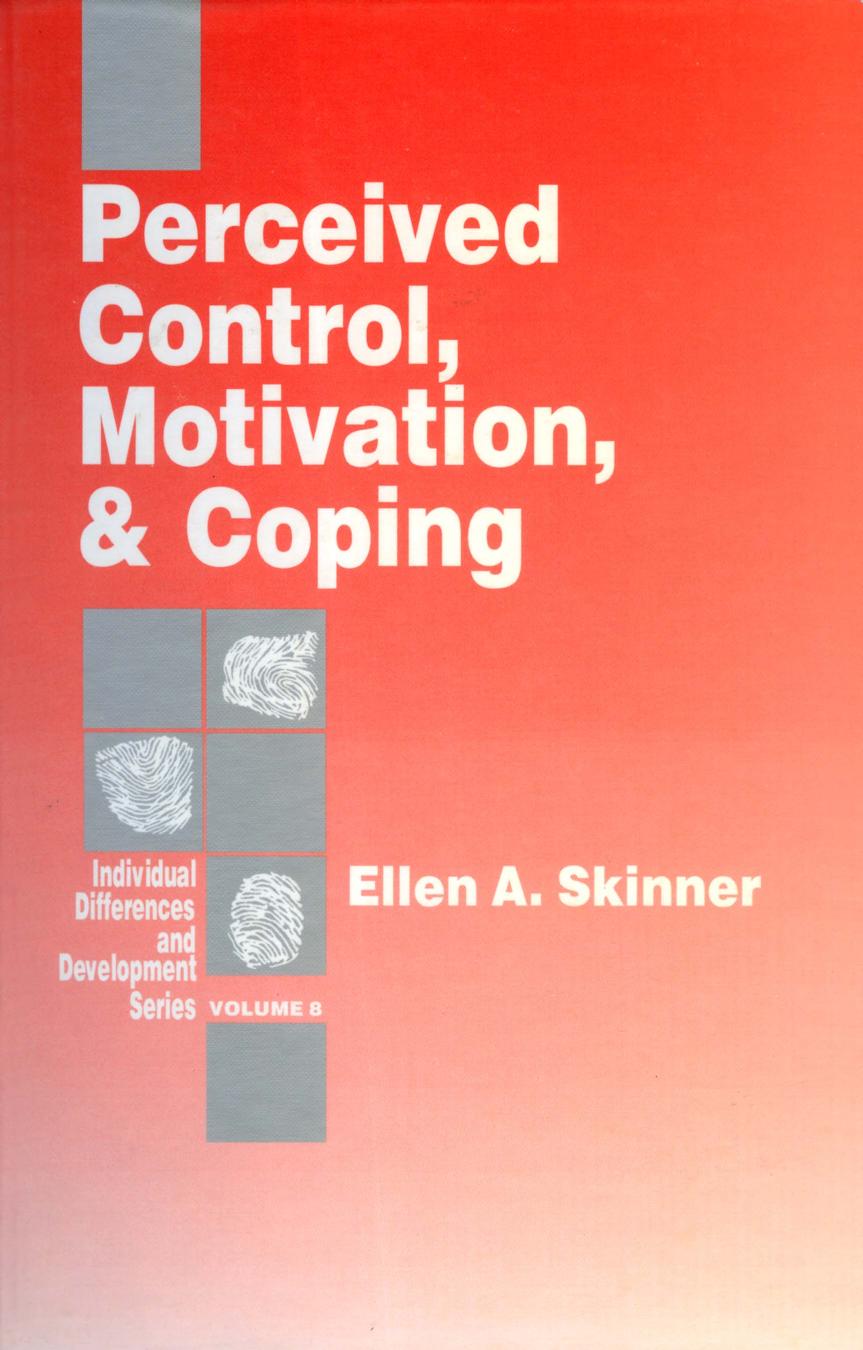Perceived Control Motivation and Coping 1st Edition by Ellen Skinner 080395560X 9780803955608
$70.00 Original price was: $70.00.$35.00Current price is: $35.00.
Instant download Perceived Control Motivation & Coping Ellen A. Skinner after payment
Perceived Control Motivation and Coping 1st Edition by Ellen Skinner – Ebook PDF Instant Download/Delivery: 080395560X, 9780803955608
Full download Perceived Control Motivation and Coping 1st Edition after payment

Product details:
ISBN 10: 080395560X
ISBN 13: 9780803955608
Author: Ellen A. Skinner
At every point in the life span, individual differences in a sense of control are strong predictors of motivation, coping, success, and failure in a wide range of life domains. What are the origins of these individual differences, how do they develop, and what are the mechanisms by which they exert such influence on psychological functioning? This book draws on theories and research covering key control constructs, including self-efficacy, learned helplessness, locus of control, and attribution theory. Ellen A. Skinner discusses such issues as the origins of control in social interactions; environmental features that promote or undermine control; developmental change in the mechanisms by which experiences of control have their effects on action; and the implications for intervening into the competence system, including interventions for people in uncontrollable circumstances. Written at a level appropriate for upper-division undergraduates, the book can serve as a supplement to the social and personality development course as well as a core text for motivation, educational psychology, or clinical courses at the graduate level. This book won′t be the first one on the topic, but it will be the first one that professionals and graduate students turn to whenever they want a definitive opinion on complex questions of control or an idea for cutting-edge research on the topic of motivation, coping, and control.
Perceived Control Motivation and Coping 1st Table of contents:
Part I – Meta-Theoretical Assumptions
Chapter 1 – What Is Perceived Control?
Misperceptions About Perceptions of Control
Challenges to the Study of Perceived Control
Chapter 2 – What Is the Need for Competence?
When Needs Are Acquired Versus Innate
Arguments Against the Need for Competence
Implications of a Needs Theory
Part II – Constructs of Control
Chapter 3 – Are All Perceived Control Constructs the Same?
Four Major Theories of Perceived Control
Constructs in the Competence System
Chapter 4 – Who Needs a New Conceptualization of Perceived Control?
The Conceptualization
Beliefs Specific to Domain and Developmental Level
Profiles of Perceived Control
Part III – Antecedents of Perceived Control
Chapter 5 – What Are the Origins of Perceived Control?
Perceiving Control
Opportunities for Control
The Role of the Individual in the Generation of Control Experiences
The Origins of Individual Differences in Sense of Control
Chapter 6 – How do Social Contexts Promote and Undermine Control?
Structure Versus Chaos
Elements of Structure Versus Chaos
Conclusion
Part IV – Consequences of Perceived Control
Chapter 7 – Why Does Perceived Control Predict Everything?
When Does Perceived Control Work?
How Does Perceived Control Work?
Why D oes Perceived Control Work?
Where Does Perceived Control Work?
Conclusion
Chapter 8 – How Does Perceived Control Work During Times of Stress?
A Needs Analysis of Coping
Perceived Control and Structure as Psychological and Social Resources
Conclusion
Part V – Development of Perceived Control
Chapter 9 – How do Individual Differences in Perceived Control Develop?
The Cycle of Perceived Control and Action
Implications of Interindividual and Intra-Individual Analyses
Interindividual Differences in Change Over Time
Individual Differences in Developmental Change
Chapter 10 – How Does Perceived Control Change With Age?
Processing of Control-Relevant Information
Conceptions of Causes
Regulatory Beliefs
Domains of Control
Action and Action Regulation
The Development of the Competence System
Part VI – Intervention into the Competence System
Chapter 11 – Is More Control Better?
The Negative Effects of Increased Control
Perceiving Control in Uncontrollable Circumstances
Conclusion
Chapter 12 – What are the Dangers of Intervening Into the Competence System?
When Control Is Available: Setting up Opportunities for Control
When Control Is Possible: Regaining Control
When Circumstances are Uncontrollable: Finding Control
Conclusion
Part VII – Empirical Study of Perceived Control
Chapter 13 – How do I Decide Whether to Include Perceived Control in My Research?
What Are the Anchors?
What Are the Mechanisms?
What Is the Frame?
What Are the Constructs?
What Are the Measures?
What’s the Good News and the Bad News?
Conclusion
Chapter 14 – What Are the Future Research Issues in Perceived Control?
Mechanisms
Beyond the Constructs of Control
People also search for Perceived Control Motivation and Coping 1st:
4 coping skills
5 coping mechanisms
5 positive coping strategies
20 coping mechanisms


